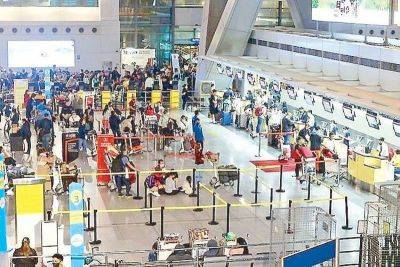Back to basics: Turning to agro-industrial solutions to address food insecurity, hunger
To be food poor is the most profound and deeply felt kind of poverty of all. Food, after all, is the most basic among human needs.
Here in the Philippines, the food crisis is palpable. The latest Social Weather Stations survey conducted between June 28 and July 1 this year showed that 34% of families rated themselves as food-poor, while 38% said they were between being food-poor and not food-poor. Just 29% of families said they were not food-poor.
Being food poor is intimately linked with hunger. The SWS also reported that in the second quarter, some 10.4% of Filipino families had the very real experience of feeling involuntary hunger at least once in the three months preceding the survey. Breaking this number down, 8.3% said they experienced moderate hunger while 2.1% felt severe hunger.
Indeed, Filipinos continue to grapple with the high prices of basic commodities. According to the PSA, food contributed 58.3% to the overall inflation in September 2023. Food inflation also rose to 10.0% from 8.2% in the previous month. This acceleration was primarily due to the higher inflation for rice.
In another survey, this time by Pulse Asia and conducted in September 2023 revealed that controlling inflation was the top concern of nearly three in four (74%) of Filipinos, regardless of their geographic location and socio-economic class. This number represented a staggering increase of 11 percentage points from the previous quarter.
Being a fully developed, vibrantly service-driven, consumption-powered, and technologically enabled economy is good. This path has allowed the Philippines to gain its rightful place in the global BPO industry, and to be among the most active and engaged internet users in the world.
Unfortunately, the pandemic heightened our gaps and vulnerabilities. For instance, the economy suffered when mobility was restricted as a means to curb the spread of the virus. Because we were reliant on imported goods, most common of which was food and other basic supplies, supply chain disruptions caused price surges that made survival even more difficult for many Filipinos.
This was – and still is – exacerbated by our vulnerability to weather and other







